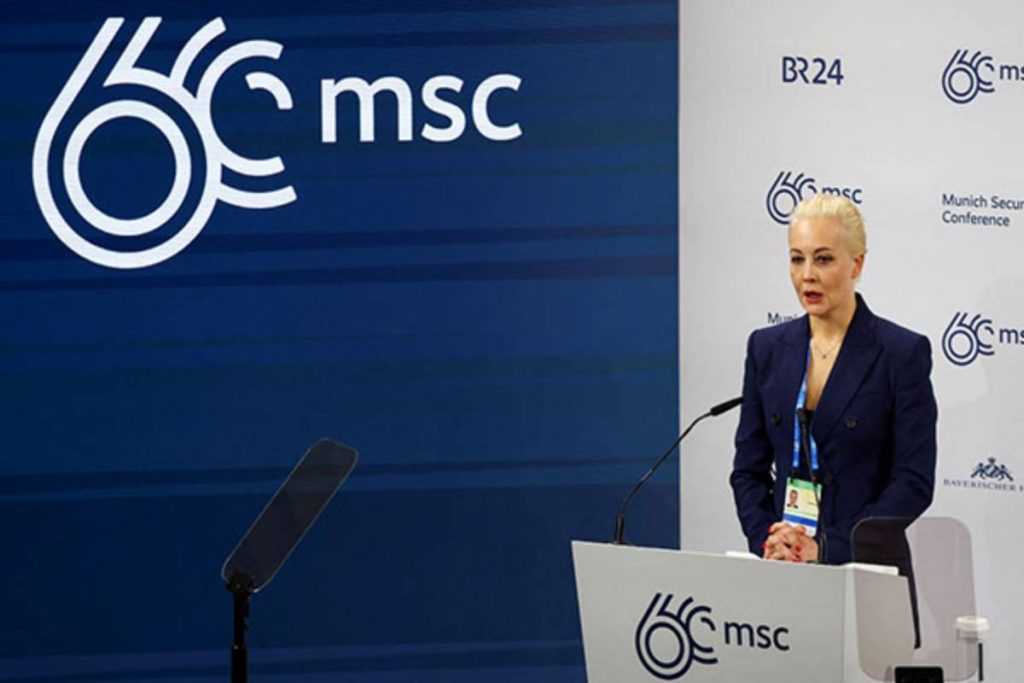Yulia Navalnaya, the widow of the late Russian opposition leader Alexei Navalny, is scheduled to meet with European foreign ministers in Brussels on Monday, according to the European Union’s foreign policy chief, c, Al Jazeera reported.
The 47-year-old Navalny, a prominent critic of President Vladimir Putin, passed away in a Russian jail on Friday after more than three years of imprisonment, sparking condemnation from Western leaders and supporters.
Borrell announced, “On Monday, I will welcome Yulia Navalnaya at the EU Foreign Affairs Council. EU Ministers will send a strong message of support to freedom fighters in Russia and honour Navalny’s memory.” This meeting is a significant diplomatic move in response to Navalny’s death, aiming to express solidarity with those advocating for freedom in Russia, as reported by Al Jazeera.
Navalnaya, expressing her grief on Instagram with a touching photo of her and her late husband, wrote, “I love you,” just two days after his death. The post added a personal note to the formal expression of loss she had conveyed publicly shortly after the Russian prison service announced Navalny’s passing.
The circumstances surrounding Navalny’s demise remain unclear. He fell unconscious and died after a walk at the “Polar Wolf” penal colony in the Arctic, where he was serving a three-decade sentence. Navalnaya, in an appearance at the Munich Security Conference shortly after the news broke, spoke passionately about the responsibility she believes Putin and his government bear for her husband’s fate.
“If the news of his death was true,” Navalnaya asserted, “I want Putin, his entire entourage, Putin’s friends, his government to know that they will bear responsibility for what they did to our country, to my family, to my husband.”
Navalny’s sudden death dealt a severe blow to many Russians who had looked to him as a key figure for change, despite his repeated brushes with the Kremlin.
Even after surviving a nerve agent poisoning and enduring multiple prison terms, Navalny remained an outspoken critic of the Kremlin. His passing comes just a month before a presidential election in Russia that is widely anticipated to secure another six years in power for President Putin.
The news of Navalny’s death prompted an outpouring of grief and frustration across Russia. Hundreds of people in numerous cities gathered at makeshift memorials and monuments dedicated to victims of political repression, leaving flowers and candles to pay tribute to the departed politician.
However, the response from authorities was marked by detentions and arrests. By Sunday night, the OVD-Info rights group reported 366 detentions in over a dozen cities, with more than 200 occurring in St Petersburg alone.
Among those detained was Grigory Mikhnov-Voitenko, a priest of the Apostolic Orthodox Church, who had announced plans for a memorial service for Navalny. He was charged with organizing a rally and subsequently hospitalized with a stroke.
Questions surrounding the cause of Navalny’s death persist, with uncertainty about when authorities will release his body. Over 12,000 people have submitted requests to the Russian government seeking the release of Navalny’s remains to his relatives. Navalny’s team asserted that he was “murdered” and accused authorities of intentionally delaying the release of his body.
The Russian government had viewed Navalny and his supporters as extremists with alleged links to the CIA. Navalny consistently dismissed accusations that he had connections with the US intelligence agency, emphasizing his commitment to opposition politics in Russia, Al Jazeera reported.
